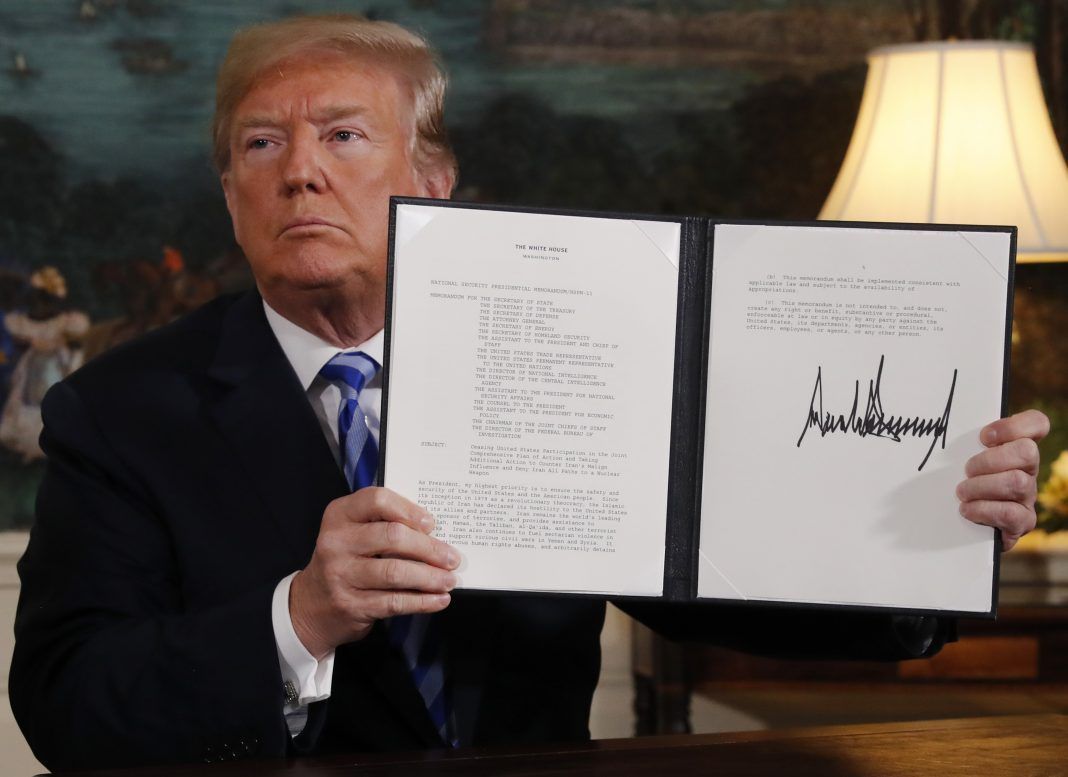By Lawrence Delevingne and Svea Herbst-Bayliss
LAS VEGAS, May 9 (Reuters) – Dick Cheney and Leon Panetta, who served at the highest levels of U.S. government, see potential unintended consequences of the Trump administration’s decision to pull out of the Iran nuclear deal, including possible military action in the Middle East.
Cheney, who served as vice president in the George Bush administration, and Panetta, who served as President Barack Obama’s defense secretary, pondered the consequences a day after U.S. President Donald Trump left the international agreement, raising the risk of conflict in the Middle East, upsetting European allies and casting uncertainty over global oil supplies.

Panetta said the most worrisome issue for him is that Iran might continue to enrich uranium to build its nuclear capabilities. That could prompt Israel to react, Panetta said.
“I don’t think Israel is going to stand by and allow Iran to develop a nuclear weapon because they would view that as a direct threat to the existence of Israel,” Panetta, 79, said.
“It would be my sense that Israel would seriously consider some type of military action to deal with that.”
Given the U.S. relationship with Israel, the United States would “probably have to be part of that,” he added.
The men were speaking at the Context Leadership Summit in Las Vegas, a hedge fund-themed conference that brought together investors, money managers and former policy makers.
Cheney, 77, who said he never liked the Iran nuclear deal, agreed there could be conflict in the region even though he is not thinking that the United States would be automatically drawn in.
“I don’t expect military action but it is anyone’s guess. It’s the Middle East,” he said.

Both men said U.S. allies in the region could play a critical role in helping keep the geopolitical balance. Panetta recommended a NATO-like coalition, including Saudi Arabia, the United Arab Emirates, Israel, Jordan and Turkey.
‘GLOBAL WORLD’
More long-term dangers for the United States include China’s growing power, Cheney said.
“Over a long term they are more likely to represent a strategic challenge to the U.S. than Russia or any of the other nations out there,” he said.
Both Cheney and Panetta, who both served as U.S. defense secretary during their careers, worried about China’s decision to militarize islands in the South China Sea and urged a stronger U.S. military presence in the region.
“I think it is very important for us to talk with them, communicate with the Chinese, but to do it from strength,” Panetta said. The best way to do that is to simultaneously increase both diplomatic and military might, he said.
The men spoke on a panel dubbed a “Bi-partisan Discussion on the Future of U.S. Politics.”
Each has a child who is now serving in Congress and said they were confident the next generation of lawmakers would work harder to build government consensus.
Panetta said it was a mistake by the Trump administration to pull out of the Trans-Pacific Partnership trade agreement, and by walking away, the United States gave China a chance to expand its influence.
“This is a global world. We cannot isolate ourselves from that world,” Panetta said.
In discussing trade agreements, Cheney recommended staying in NAFTA, the North American Free Trade Agreement, which President Trump has criticized.
“NAFTA has been a good deal,” he said. “I hope we do not do something foolish in terms of trade policy.”
One thing they were both quick to agree on is that Gina Haspel, Trump’s pick to lead the Central Intelligence Agency, should be confirmed.
(Reporting by Svea Herbst-Bayliss and Lawrence Delevingne Editing by Robert Birsel)


